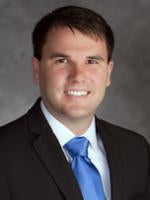In a much anticipated opinion addressing Texas franchise tax apportionment, the Texas Supreme Court ruled on 25 March 2022 in favor of the taxpayer, overturning a court of appeals decision that had upheld the Texas Comptroller’s “receipt-producing, end-product act” test to apportion receipts from services. In confirming Texas’ single-factor, “origin-based” system for apportioning receipts, the Texas Supreme Court also confirmed that this system generally requires looking to where a taxpayer’s employees do their work or, if technology does the work, to the location of equipment. The court saw no need for the Comptroller’s “atextual and unhelpful ‘receipt-producing, end-product act’ test” to play any role in its decision.
Texas statutes generally apportion to Texas receipts from “each service performed in this state.” The Comptroller and Sirius disagreed not only about how to source Sirius’s monthly fees from its Texas subscribers, but also about which services were relevant to this analysis. Sirius argued that the relevant services are its production and broadcasting services, so the court should look to the location of Sirius’s personnel and equipment performing such services, which were located primarily outside of Texas. The Comptroller argued that, under its “receipt-producing, end-product act” test, the relevant service is the decryption of Sirius’s radio signals that occurs in the radios installed in customers’ vehicles, and therefore the court should look to the location of Sirius’s customers.
Reversing the court of appeals’ decision, the Texas Supreme Court rejected the Comptroller’s “receipt-producing, end-product act” test, pointing out that such test does not appear in statutes and expressing concern that application of the test could yield a result different from the result required by a straightforward application of statutory language. The court agreed with Sirius that, consistent with prior case law, the proper analysis must focus on the location of Sirius’s personnel and equipment performing services. The court concluded that the relevant services for these purposes are Sirius’s production and broadcasting services, noting that the radio content is Sirius’s valuable service and that the Comptroller’s focus on decryption “elevates the technicalities of the transaction over the economic reality of the services performed.” Characterizing Sirius’s services as a decryption service, according to the court, “is like saying the service performed by The Wall Street Journal Online is a ‘paywall-removal service,’ rather than the creation and distribution of news and opinion content its subscribers want to read.”
The Texas Supreme Court remanded to the court of appeals the issue of determining the value of Sirius’s services performed in and outside of Texas, so we may see more on this case in the future. At the very least, the Sirius XM Radio1 case is yet another example of the Texas Supreme Court’s willingness to take a critical look at interpretations of tax statutes that reach beyond the language enacted by the legislature.
FOOTNOTES
1 Sirius XM Radio, Inc. v. Hegar, No. 20-0462, 2022 WL 879704 (Tex. Mar. 25, 2022).






 />i
/>i
